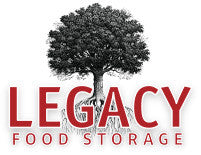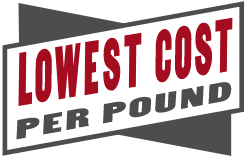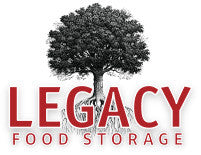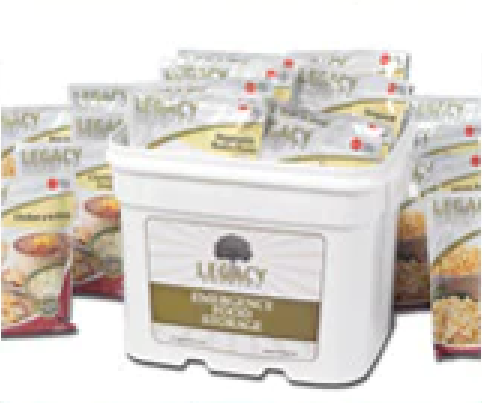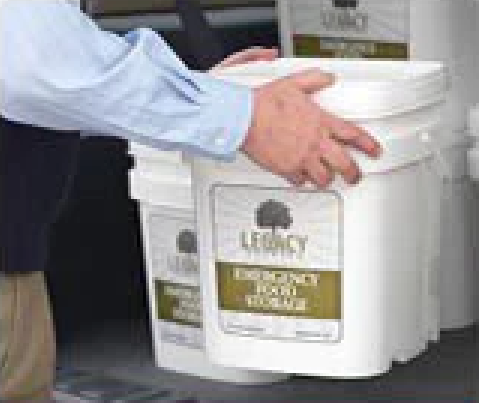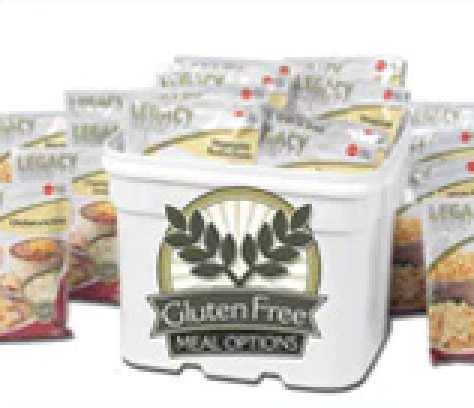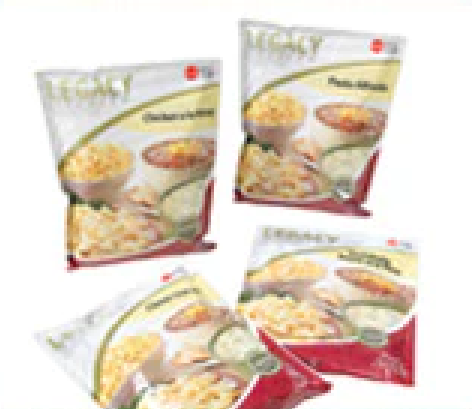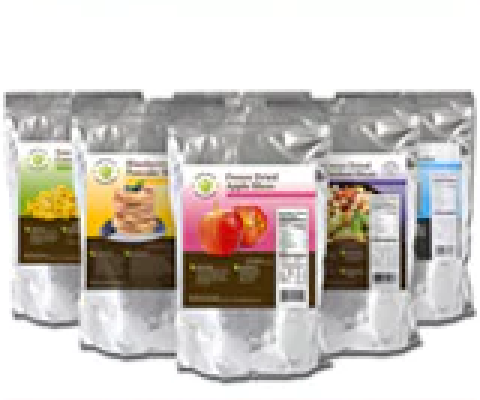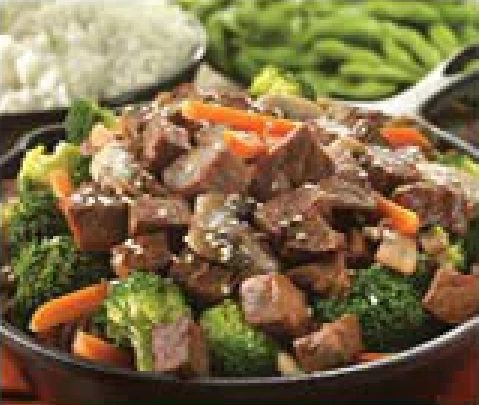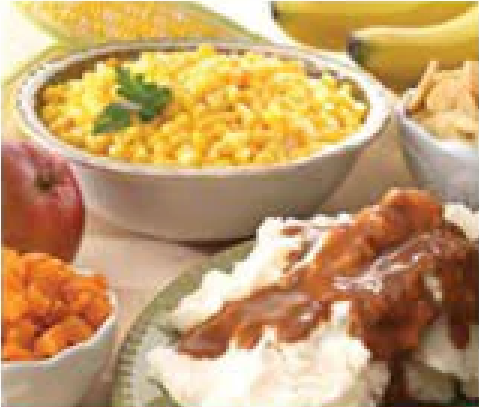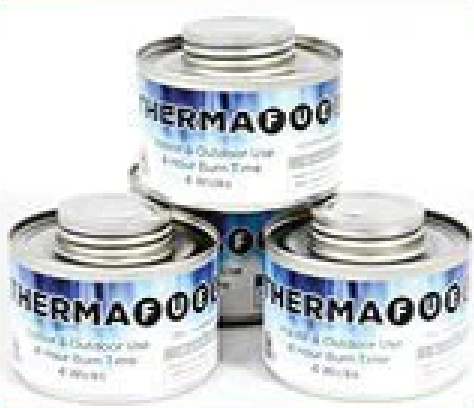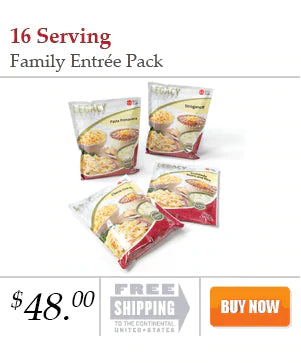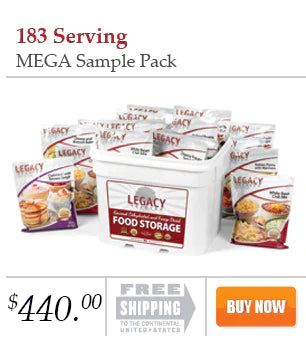Home Freeze Dryer Vs. Pre-Packed Freeze Dried Food

Home freeze dryers are becoming more popular of late, and they are very cool machines. There are generally two categories of people interested in a home freeze dryer: Those interested in preserving leftovers, garden surplus or novelty uses like freeze dried ice cream, and other similar applications and those interested in building their own supply of long term, emergency food storage. The comparison chart below only addresses the emergency food application.
Does a do-it-yourself home freeze dryer make sense to build your own supply of emergency food? We hope the comparison chart below addresses some of the questions you might not have fully considered:
Compare: Home Freeze Dryer Or Pre-Packaged Freeze Dried Foods?
Home Freeze Dryer
|
Pre-Packaged Freeze Dried Foods
|
|
|---|---|---|
| Gee-Whiz Factor | Very, very cool idea. The ability to make your own freeze dried ice cream sandwich or preserve some leftovers? You have to admit it's pretty cool. | Really, exceptionally, amazingly boring. |
| Capacity | Depending on the food you are freeze drying and the particular make and model of machine you are using, one cycle takes an average of 30 hours to complete (drying times vary plus or minus 10 hours depending on the type of food). With the cheapest units on the market, you can make about enough freeze dried food in one cycle to fill about 1 to 2 #10 cans. If you were extremely diligent and stayed right on top of it, you could run 5 cycles a week, or create 7 to 10 #10 cans of food per week. On average, a year supply of food for 1 person ends up being about 215 #10 cans worth of food. So... to create a year supply of food for one person, it would take 5 to 7 months of continuous operation. If you wanted to build a year supply of food yourself for a family of 4, you'd need to run your machine continuously for roughly 2 years. Keep in mind that the warranties on most of these machines are only 1 year. | Purchase the amount of food that you want. It arrives ready to store and/or prepare. |
| Use in an Emergency | If the worst should occur, you want to have your emergency supply ready to go. If an emergency event interrupts the power grid, then a freeze dryer is useless. You need to have all your emergency supplies ready and on hand before such an emergency strikes. If you are planning on building your own supply of food, make sure you have it built and ready before the next emergency. | Pre-packaged emergency food arrives complete and ready to use. It requires no electricity to create, and only a fuel source (like a wood fire) to boil water to turn it into edible food. It is really a question of being fully prepared right away (with a pre-packaged emergency food supply) vs. being fully prepared sometime in the future after you have painstakingly built your supply (as with a home freeze dryer). |
| Ingredient Quality | Some folks are very concerned about quality and source of ingredients. For these folks, a freeze dryer assures that you know what goes into your emergency storage, because you painstakingly made it all yourself. | You should know that Legacy Emergency Food Products are manufactured at a 200,000 sq. ft, state of the art facility that is regularly inspected by the FDA, and maintains certifications for Organic, Gluten Free, Natural, Non-GMO, ISO 9001, food allergy and other stringent quality control standards. |
| Machine Footprint or Storage Space | The smallest machines available are about the size of a large mini-fridge, and some models have a separate external pump and hose. As a counter-top appliance it has a very large footprint. | Storage space needed will depend on how much food you order. Be prepared to store all food storage in a cool, dry place. |
| Noise Level | Most freeze dryers run at between 60 and 70 decibels. By way of comparison, a household vacuum cleaner runs at about 70 decibels… for up to 40 hours at a time. | 0 decibels. It just sits there quietly. |
| What about Re-Hydrating? | "Mom, you really know how to re-hydrate a pizza!" - Marty McFly. Some freeze dried foods are easy to re-hydrate. Just soak or boil. Freeze dried vegetables, for example, can simply be boiled to re-constitute. Other freeze dried foods, like fruit, are great as a snack while still freeze dried. However... some foods might be a challenge to re-hydrate. You can't boil a pizza, or a cassarole, or a taco, or other types of food. Even with a steamer, it may be a real challenge to bring some dishes back to full hydration without some dry or crunchy spots. Many rehydrating techniques call for using an oven to add water and steam your meals back to normal, which would be virtually impossible to do in the event of the power grid shutting down. Also note that with a freeze dryer, you are guaranteed to have 100% freeze dried final product. Be aware that some freeze dried food ingredients may not taste the same after they have been re-hydrated. |
Legacy Freeze Dried Ready Meals are all designed to be re-hydrated by boiling. You won't get dead-ended with foods that aren't practical for re-hydrating. Legacy meals contain a blend of mostly freeze dried ingredients with some dehydrated ingredients. Dehydrated ingredients are used instead of freeze dried ingredients when the taste or potency can be affected by the freeze drying process. The blend of freeze dried and dehydrated ingredients is designed to insure maximum taste. |
| Hassle Factor | Most folks haven't given much thought to prep, cleanup and maintenance. In addition to the actual freeze drying time for each cycle, you will need to prepare your food for freeze drying, can or bag your freeze dried food, cleanup the mess, and perform a partial oil change or other routine maintenance required between each cycle (varies by make and model of machine). When calculating the cost of making your own freeze dried emergency food supply, be sure to include the cost of your time. Everyone values their time differently, but assume you place only a $10 / hour value on your time. Each cycle will cost you between $10 and $20 depending on variables. It takes a significant amount of your time and effort to freeze dry enough food for a single cycle. If you are planning on building your own supply of emergency food, you could spend hundreds of hours in prep, cleanup and maintenance. Bottom line: Preparing, freeze drying, properly storing, cleaning & maintaining has a P.I.T.A factor that goes to ELEVEN. |
Life is WAY too short. Easy to prepare freeze-dried food storage meals are hassle FREE! Just buy what you want and it comes ready to store and prepare. |
| Machine Purchase | There are many models of home freeze dryers available, most options come in a price range of $3,000 to $11,000. In addition, most require other accessories, like an external pump, to maximize efficiency. Depending on how many cycles you use, or how many cycles you get out of the machine over it's lifetime (note that most of these machines only have a 1 year warranty), it would cost between $10 and $20 per cycle to amortize the cost of the cheapest machine. | $0.00 - No expensive machine purchase required. |
| Maintainance & Repairs | Assuming the your unit doesn't break down and need repairs, most units require some sort of maintenance like an oil change, defrosting or other maintenance between every cycle. | None |
| Cost of Food | Grocery Store Prices for anything you don't grow on your own. | This is difficult to pin down with precision. Comparing food prices between grocery store and pre-packaged emergency food can vary depending on the type of food and factors like seasonality and discount sales. Some prepackaged emergency food items can be quite expensive while other items or meals are almost the same price in comparsion to non-freeze-dried grocery store prices. On average, expect that pre-packaged emergency food is indeed more expensive than non-freeze dried grocery store equivalents. It is important however to keep in mind the TOTAL COST of OWNERSHIP (see below) when comparing, as actual food costs are only one factor. |
| Power Usage | Even the cheapest units pull a huge amount of power. They can cost over $2.50 PER DAY in electricity. If you use it continuously to built up a supply of emergency food, you could spend almost $1000 per year in additional electricity. For a single cycle averaging 30 hours, your electricity cost is over $3. | $0.00 |
| Other Supplies | If you are making your own emergency food supply, you will likely need containers (mylar bags, or #10 cans), sealing equipment, oxygen absorbers, dehumidifiers, nitrogen flushing equipment & more. As an example, if you wanted to use #10 cans to seal your freeze dried food, the cheapest hand crank can sealers start at about $800. Based on this, for every cycle you run, expect to incur an additional $3 of cost. | None |
| Total Cost of Ownership & Operation |
There are several factors that will determine the true and total cost of owning a Home Freeze Dryer for building your own supply of emergency food, including, but not limited to, the machine itself, maintenance, food, power, additional supplies and most importantly, your time. When comparing the total cost of making your own freeze dried food supply with a home machine, vs. simply buying pre-packaged freeze dried ready meals, consider ALL the costs. As noted above, in the COST OF FOOD section, pre-packaged, freeze dried emergency food is more expensive when you compare it to the equivalent amount of 'wet' food from the grocery store. BUT... actual food cost is only one cost factor. If you compare only food cost to food cost, indeed, the home freeze dryer route APPEARS to be the cheaper approach. But once you add in the other 'hidden' costs, the situation changes. HERE IS THE BOTTOM LINE. To make 1 to 2 #10 cans worth of food (1 cycle), you have food cost + electricity (Approx $3 for an average cycle) + Amortized cost of the machine ($10 to $20 per cycle) + cost of packaging supplies and equipment ($3 per cycle) + the most important cost of all, the cost of your time (minimum $10 to $20 per cycle). SO consider that 1 to 2 cans per cycle ends up costing between $26 and $46 BEFORE THE FOOD COSTS are even factored in. TOTAL COST CONCLUSION: Once you factor in ALL the costs (not just the cost of food) the answer is clear. Making your own emergency supply is not only an impractical hassle for most folks, it is actually more expensive than pre-packaged freeze dried emergency food. |
The true cost to own professionally freeze dried food storage is basically the amount that you spend on the food itself. The price you pay is the final price. There are no hidden or unexpected costs. |
| Conclusions | When it comes to building your own emergency food supply, there are hidden expenses and hassles. There are other reasons why a home freeze dryer is a good idea for some families (preserving leftovers or garden surplus, novelty foods for fun, etc...). We aren't saying don't buy a home freeze dryer. We are just saying if your primary purpose is getting one to make your own year supply of emergency food... a thorough analysis makes it clear that it won't actually save you any money, and will add significant hassle to your life. Again, there are many other valid reasons besides building an emergency food supply for owning one, including using it to supplement an existing supply of food with things like freeze dried fruits and vegetables from your garden and fruit trees. If a Home Freeze Dryer is still a good fit for you, we recommend buying one here or here. |
A professionally prepared and packaged supply of emergency food is far cheaper and vastly more convenient than the Do-It-Yourself approach. If you are interested in getting more food storage, click here to see why Legacy Food Storage is the best value in emergency food. |
